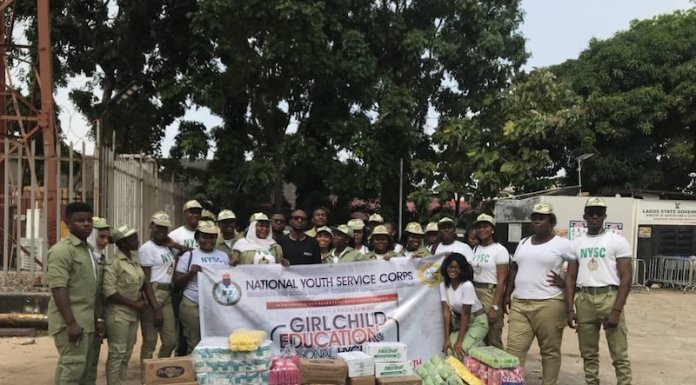By: Chiamaka Ozulumba
With emphasis on the girl-child, some youth corps members of the Social Welfare and Education Group under Apapa Local Government Area (LGA), through its Community Development Service Initiative, recently embarked on the ‘Fearless and Speak-out’ campaign, which is sensitisation of teenagers about rape, child abuse and molestation, as well as ‘Give the Girl-child a Pad’, which tackles personal and menstrual hygiene.
The youth corps member group in collaboration with the Apapa Local Government Council, Rehdors Logistics Solution Limited, Matsept Global Logistics and Blue Anchor Agency embarked on the sensitisation and educative program on rape, child abuse and molestation and personal hygiene with emphasis on the girl-child in secondary schools within the Apapa community.
This project being the first of its kind began with two secondary schools; United Christian Junior Secondary School, Liverpool and Randle Senior Secondary School, both in Apapa
Menstrual Hygiene
Menstrual hygiene management (MHM), as captured by United Nations Children’s Fund, (UNICEF) and World Health Organisation (WHO) is the comprehensive access to safe and healthy sanitary pad, adequate information, preparation, and support with which to manage menstruation in a healthy, safe, and dignified manner. Its absence can cause infertility, amongst other diseases in the reproductive system of women.
Globally, poor MHM has been a grave challenge and Nigeria is no exception. The United Nations Educational, Scientific and Cultural Organisation (UNESCO), the report estimates that one in ten girls in Sub-Saharan Africa misses school during their menstrual cycle, beyond this, gap in MHM has been recognised as one of the impeding factors to social and economic empowerment and growth.
In Nigeria, in addition to the taboos and myths surrounding menstruation, MHM issues confronting women and girls as include low availability of hygienic sanitary towels, high cost of disposal pads, poor knowledge of menstrual hygiene management and insufficient access to safe and private sanitation services, availability and adequacy of water.

